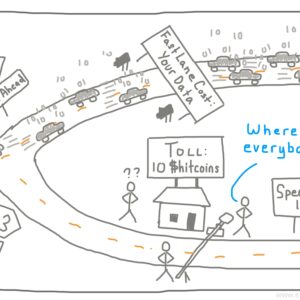Micro Resolution: Communication Patterns
A respected friend and academic was speaking about something personal. I wish I could recall what it was but the only thing I can remember about the conversation is how incredibly often she used — clearly without noticing — the word "like". It was placeholder, punctuation, and security blanket in one. When this person wrote, I knew, it was clear, eloquent and incisive. When she spoke, she undermined every phrase with disqualifiers, fuzzy words and, of course, "like".
I couldn't help myself… I started counting. She used "like" 13 times in one single sentence. Hearing that broke something in my ability to flow with normal conversation and I began noticing similar things that I never had before. It quickly became apparent how important subtle (and not-so-subtle) communication patterns are in determining a speaker's credibility and impact. A few of these stand out more than the rest.
**
Conversation and communication have degraded steadily over the past several decades and I'm no better than most. We've lost the ability to communicate precisely and to back our statements with authority. Too often, casual conversation devolves into a battle for airtime and the expression of fuzzy ideas backed by "feelings", which is really just a defense against criticism.
This is the time of year when many people make big New Year's resolutions. I have my own versions of those but I'd like to focus on a smaller "micro resolution" as well. Specifically, I want to combat this degradation of communication by completely eliminating the following 3 fuzzy phrases/words/placeholders from my everyday speech:
- “I feel like…” This phrase has destroyed precision and undermined our commitment to our opinions. When every single thought begins with and is backed by only feelings, there is no way to argue against it. "I feel like…" is a cop out from having to make an actual statement. It should be replaced with nothing but the statement that would normally follow it.
- “…like…” Listen to anyone from the Internet Generation speak these days and count how many times they use this word — which was once the object of derision in popular culture via the "Valley Girl" stereotype — per sentence… it’s atrocious. A transcript of most modern conversations would put “like” in the lead as the most-used word by multiples. In addition to the friend who used "like" 13 times in one sentence without noticing, another averaged 6 times per sentence over an entire conversation. Ouch. So unless it is properly used as a comparator, I want to completely eliminate this word from my stuttering, word-vomit vocabulary.
- ”…ummm…uhh…” It’s easy to use these as placeholders between thoughts. Conversation has too often become a battle of getting your thoughts out next (via interrupting) and these sounds are also used as defenses to say “don’t interrupt, I’m not done yet…”. I want to eliminate them nonetheless in order to express clearer, more precise thoughts and avoid the patterns of defensive conversation. Don’t fear the silence!
Of course, in the broader scope of Things That Matter, cleaning up your speech patterns is a somewhat trivial goal. Granted. But doing so can be surprisingly meaningful if your goal is to communicate clearly and effectively. My real hope is that, by tightening my speech patterns, I will be forced to think more clearly as well.
Step 1 is awareness and you can help me by bringing my attention to it when I use these phrases. (part of this goal has stemmed from my current inability to stop hearing them now when other people use them). If you want to jump on board, I’ll happily do the same. (edited)







